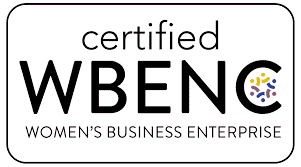Hi,
Do you find it hard to calibrate when there are numerous gut-wrenching events taking place? I do. I know when I share positive news to help you stay focused on your priorities as thoughtful leaders, it may come off as tone-deaf to some people depending on what’s most affecting them. Believe me, as an empath, I’m feeling it all every day, but what I’m feeling is of no consolation to people experiencing trauma. The best I can offer: let’s do what we can in our own sphere to create a ripple effect toward places in need.
And for you, the thoughtful leader, I’d like to bring up the topic of compassion in business, because I had a realization: compassion cannot happen without communication.
What do I mean? When you know what someone is going through, compassion comes readily, I’m sure. But what about those times when someone is behaving differently, or badly, but you don’t know why. They’re not sharing what’s up, and that can make it feel personal. Even though we all know the 2nd rule in “The 4 Agreements,” it’s easy enough to slip into defensive mode, and that’s not good for anyone.
How do you deal with situations when you’d like to be supportive, but you don’t want to accept bad behavior and/or come off looking weak?
I’ll offer this, and then I’d like to hear from you all: compassion requires communication. If they’re not forthcoming, trust your instincts and know something is up. Ask gently with the intention of providing assistance if you can. If they push you off, let it go after conveying you sense something is up. Suggest they find someone in whom they can confide to help them deal with whatever it is and how they’re showing up for their work colleagues.
And now for this week’s shares:
- On the surface, you could just use this to end some arguments about pre-rinsing dishes before putting them into the dishwasher. Or you could look at it as a prompt to re-examine some business processes that technology may help streamline for you. Or, you know, pre-rinsing…
- On Instagram, StoicMindset talks about research that showed children became increasingly LESS creative over time (researchers pointed to schools), but this made me wonder about managers who provide too much instruction and lose the opportunity to have teams innovate their way to better solutions.
Do Good Spotlight
🌟 Smile Farms 🌟
I love this: Smile Farms has become a nonprofit leader in creating meaningful jobs in agricultural settings for adults with developmental disabilities, almost none of whom have worked before. Their founding story is super sweet, too. Jim McCann, Founder/Chairman of 1-800-FLOWERS.COM, Inc., had a brother living in Independent Group Living Home (IGHL), a residence for people with developmental disabilities, so he teamed up with the home’s CEO, Walter Stockton, to create this program. Learn more about what they’re doing: Smile Farms.
Noteworthy 🖋
Mill.com
I haven’t tried this yet, but I just had to share. Mill.com composts LOTS of food and lots of varieties of food right in your kitchen. And then it comes and picks it up and gets the compost back into the food system. It’s a subscription plan, so it costs to be a good citizen of the planet, but seriously, just check this out, it’s so cool!
- The lede on this from The Wall Street Journal’s Instagram about Katalin Kariko who received the Nobel Prize for in medicine for her pioneering work on mRNA caught my attention. The article talks about how she was demoted, shunted to the outskirts of the campus, had her pay cut, and endured other hardships because she and her work were unpopular. But I had to wonder how much of her trials and tribulations were because she was a woman advocating for herself and her work. Would a man have been subjected to the same treatment? We’ll never know, but I’m glad she and her research partner persevered.
- How does your state stack up re: happiest (and unhappiest) workers? Find out here via Entrepreneur.
- Are you familiar with the 70/20/10 rule of thumb for employee education? This Harvard Business Review article, co-authored by one of my favorite people, Abhijit Bhaduri, talks about the successes gained when employees get 10% of their learning from formal instruction; 20% from others; and 70% from learning in the flow of work. It’s a short read to help you ensure your employees are getting the training they need to help you—and them—grow.
Let’s concentrate our energies on helping where we can. Stay focused, stay strong, and keep bringing your best to everything you do, including taking care of yourself.
Niki


